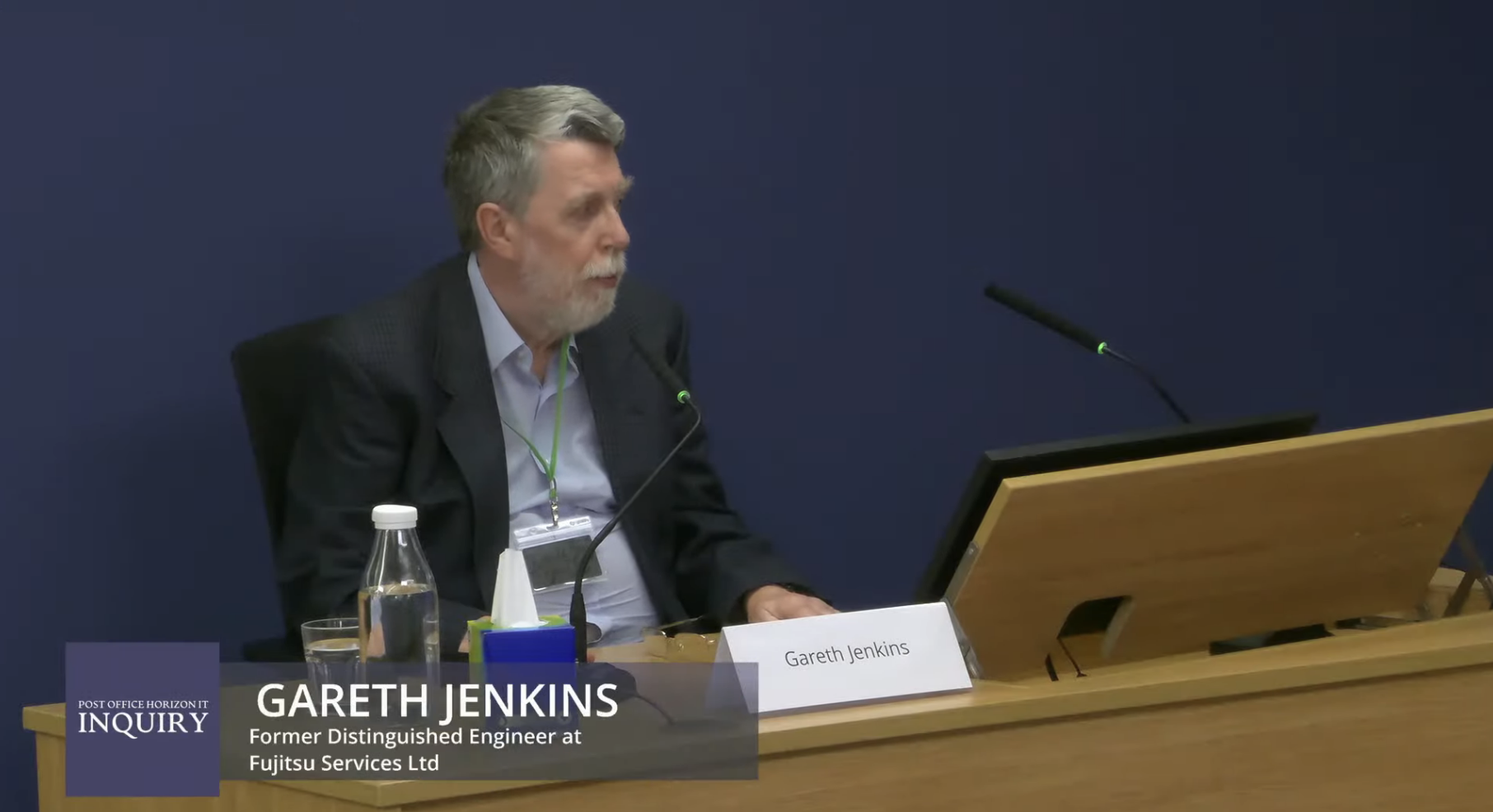
On Tuesday Gareth Jenkins was quite certain he had no idea what the duties of an expert witness were until 2020. Today we discovered he was sent an email in 2006 explaining what the duties of an expert witness were, whilst he was being asked to provide evidence to the Post Office in preparation for the criminal trial of a Subpostmaster.
Jenkins went on to be described as the Post Office’s expert witness in several prosecutions, including that of Seema Misra in 2010.
The first half hour of Jenkins’ evidence today was taken up with Jason Beer taking him through the document chains which proved Jenkins was sent an email relating to the criminal prosecution of a Subpostmaster, in which the responsibilities of an expert witness were laid out in an attached letter in some detail.
Having established that this document did reach him, Jenkins apologised. Counsel to the Inquiry, Jason Beer KC, was not satisfied:
JB: You said yesterday that had you received the letter, you would have done things differently, certainly in later cases, if you’ve been aware of the responsibilities set out in this letter.
GJ: Maybe I need to qualify that to say if I’d received and understood the detail of the letter.
JB: That’s not what you said.
GJ: I accept that and I was mistaken.
JB: Why were you mistaken? That you think that yesterday you thought had you received the letter you would have certainly done things differently in later cases. Today you don’t think, now you know you received the letter, that you would have done things differently in later cases.
GJ: I think the difference is in terms of understanding what it was all about. What I was thinking of yesterday was, with my knowledge now of what’s in that letter, then I would have done things differently. If I’d just skimmed through it and not made too much attention to what it actually said, and it had then gone from my mind when I was busy concentrating on the other attachment, then clearly I’d not remembered anything about it much beyond those couple of days…. Where I’m coming from is that I know that I acted honestly at all times and therefore the only way that I can explain that is by the fact that I just had no recollection of this letter.
Where we are now then, is that Gareth Jenkins was used as an Expert Witness, knew he was being described as an Expert Witness, had read a letter describing the duties of an Expert Witness, had seen the work of two other Expert Witnesses and yet did not comply with his duties as an Expert Witness because he thought he was on the prosecution team for the Post Office and self-evidently biased because he worked for Fujitsu.
In mitigation, he was never sat down by the Post Office and formally told about the specific duties of an Expert Witness, that he was one and how the rules therefore applied to him, though Warwick Tatford, the Post Office barrister in the Seema Misra case claims he did something very similar. This again, is something Gareth Jenkins has no recollection of (see yesterday’s evidence).
Maybe Jenkins isn’t a details man
Gareth Jenkins also appeared to have a habit of providing false information which ended up being put into various witness statements on the basis that he believed the information to be true. Jason Beer raised the infamous issue of remotely injecting transactions into branch data.
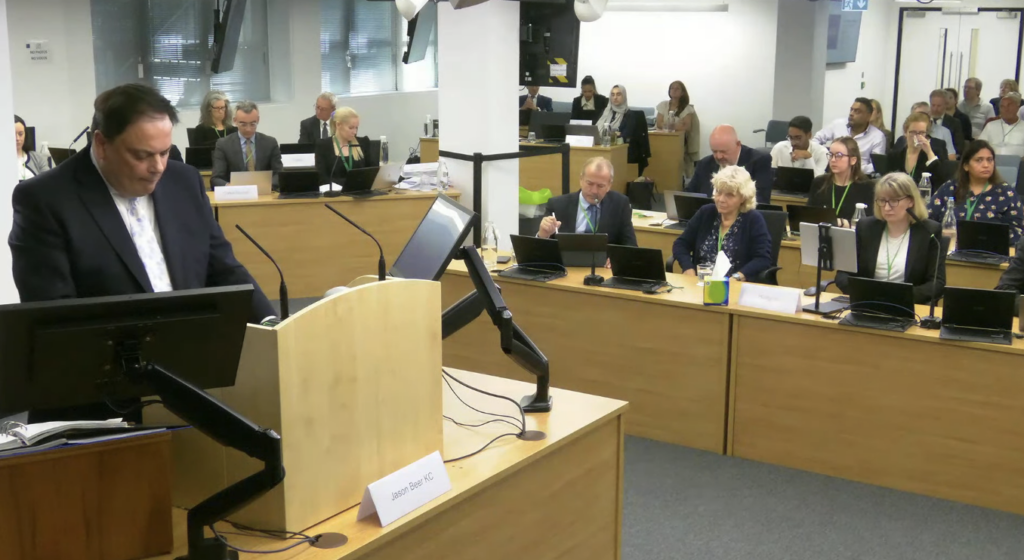
We were shown an internal Fujitsu document from 2002, which noted its technical teams had “Unrestricted and un-audited privileged access (system admin) to all systems including Post Office counter PCs”. The teams have the ability “to distribute diagnostic information outside of the secure environment; this information can include personal data (as defined by the data protection act), business sensitive data, and cryptographic key information” and that there were “no automatic controls in place to audit and restrict user access.”
At first the Post Office said remotely accessing branches was impossible. By 2017 they acknowledged it was possible, but only happened rarely and with the full knowledge of the Subpostmaster. By 2019 this had been proved wrong in the High Court, despite the evidence of Fujitsu’s (then) Chief Horizon Architect, Torstein Godeseth, who claimed otherwise. Jenkins had provided evidence to the criminal courts and via Torsten Godeseth to the High Court on a very important point, which was wrong.
“I accept now that I’ve misunderstood things”, said Jenkins.
“What enquiries had you made in order to provide the answer that you did at the time?” Beer asked.
“None,” replied Jenkins, “I was relying on what I thought I knew.”
“Is that your reflective of a general approach when involved in threatened or possible court proceedings or court proceedings themselves? You work on the basis of what you had understood from conversations and what you thought you knew rather than properly researching an issue?”
“Yes,” said Jenkins “I guess that has been the case.”
Suspicious minds
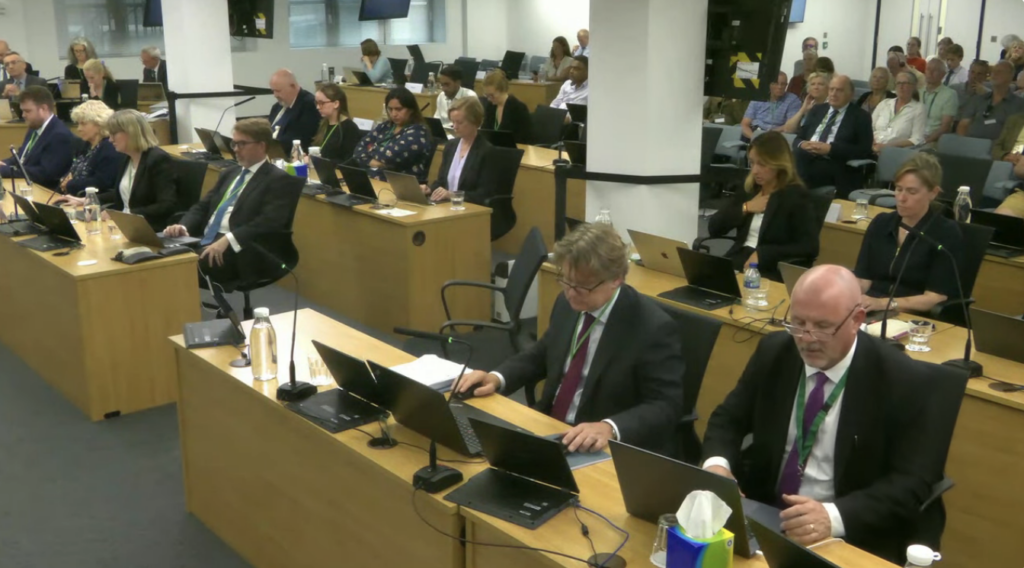
After lunch Jenkins was taken to the boilerplate screed which was attached to most Fujitsu witness statements about the integrity of ARQ data extraction. ARQ data was used in the prosecution of Subpostmasters and therefore the courts had to be satisfied the extraction process and the data itself was sound.
This boilerplate has some history. It is quoted in paragraph 284 of the Bates v Post Office group litigation Horizon Issues judgment, thus:
“There is no reason to believe that the information in this statement is inaccurate because of the improper use of the system. To the best of my knowledge and belief at all material times the system was operating properly, or if not, any respect in which it was not operating properly, or was out of operation was not such as to effect the information held within it.
Any records to which I refer in my statement form part of the records relating to the business of Fujitsu Services Limited. These were compiled during the ordinary course of business from information supplied by persons who have, or may reasonably be supposed to have, personal knowledge of the matter dealt with in the information supplied, but are unlikely to have any recollection of the information or cannot be traced. As part of my duties, I have access to these records.”
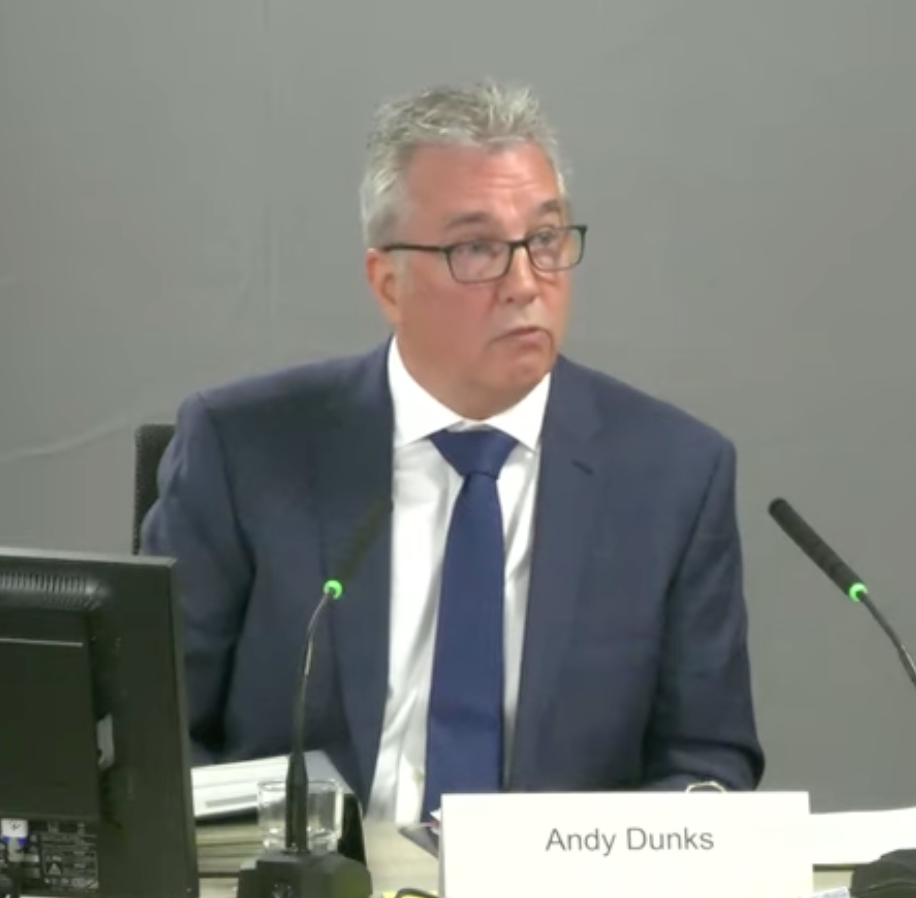
This paragraph appeared in Fujitsu employee Andy Dunks’ witness statement to the Horizon Issues trial. At the time Mr Justice Fraser described it as:
“almost that of a legal disclaimer (or a legally worded claim of accuracy, to be more precise), rather than a witness’ actual evidence. It would be very curious for a witness of fact [such as Andy Dunks] to decide to put such a formally (and rather clumsily) worded paragraph in their witness statement.”
During the Horizon Issues trial this unusual “disclaimer” was spotted by the Subpostmasters’ legal team. During cross-examination, barrister Ognjen Miletic asked Dunks what he meant by “the system” in the first paragraph. Dunks didn’t know. Dunks was asked if these two paras were a Fujitsu “party line”. Dunks denied it.
Dunks was then taken to a Gareth Jenkins witness statement, written eight years previously, for the Seema Misra trial. In it Jenkins writes:
“There is no reason to believe that the information in this statement is inaccurate because of the improper use of the computer. To the best of my knowledge and belief at all material times the computer was operating properly, or if not, any respect in which it was not operating properly, or was out of operation was not such as to effect the information held on it. I hold a responsible position in relation to the working of the computer.”
Dunks admitted that the paragraph in his witness statement was in fact part of a “standard witness statement” produced by Fujitsu, explaining that “When we supply ARQs we are sometimes asked for a witness statement to go through the process and verify as far as I’m aware that the data I supplied is accurate.”
Dunks’ initial denial led to him being reprimanded by the judge for attempting to mislead the court. Today we were asked to consider Jenkins’ relationship to these legally-worded claims of accuracy. Whilst they appeared in his 2010 witness statement to aid the prosecution of Seema Misra, Jenkins was not happy about their inclusion in a witness statement he was asked to prepare during the prosecution of Noel Thomas in 2006. When sent a draft of the statement, Jenkins marked up the following (very similar paragraphs) in yellow…
There is no reason to believe that the information in this statement is inaccurate because of the improper use of the computer. To the best of my knowledge and belief at all material times the computer was operating properly, or if not, any respect in which it was not operating properly, or was out of operation was not such as to effect the information held on it.
Any records to which I refer in my statement form part of the records relating to the business of
Fujitsu Services. These were compiled during the ordinary course of business from information supplied by persons who have or may reasonably be supposed to have personal knowledge of the matter dealt with in the information supplied, but are unlikely to have any recollection of the information or cannot be traced. As part of my duties, I have access to these records.
… and wrote underneath: “I’m not sure that the yellow bit is true. Can this be deleted? All l’ve done is interpret the data in spreadsheets that you have emailed to me.”
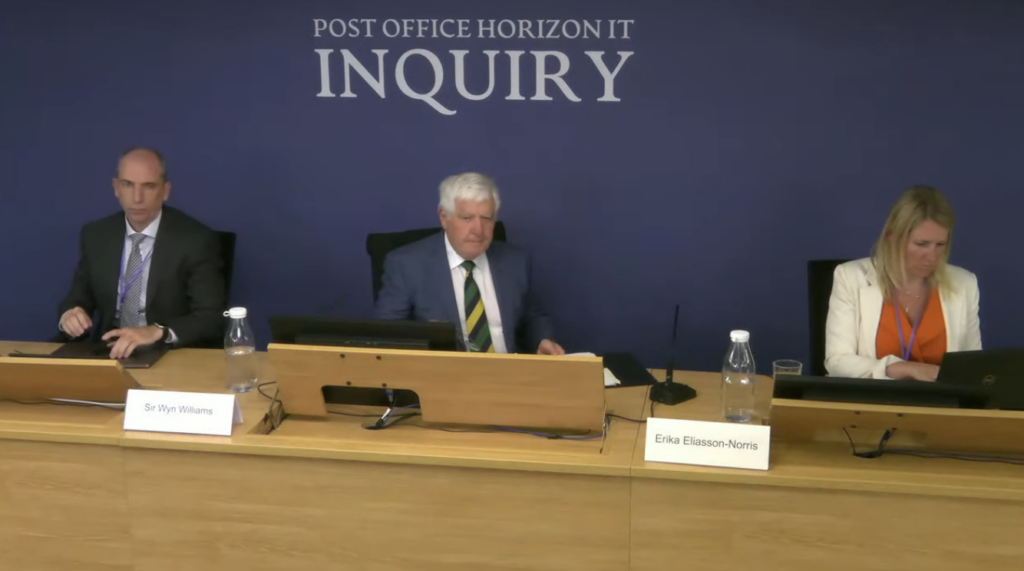
The paragraphs were not deleted. How did something which Jenkins believed might be untrue end up in a signed witness statement he produced in the criminal prosecution of Hughie Noel Thomas? Before Beer could ask this question, a clearly uncomfortable Jenkins leapt in with an explanation for his deletion request:
“I was referring to the second of those two paragraphs which was saying that I’d actually got the record out of the audit system because I hadn’t.”
Beer was bemused: “Does the second paragraph actually say that you had got the record out of the audit system?”
“No it doesn’t actually say that”, Jenkins conceded, “but it implies that I’d actually got hold of the information and I hadn’t got hold of the information.”
Beer read from Jenkins third witness statement, which said:
“As I understand it, some witnesses to the Inquiry have suggested that these paragraphs were supposed to show (or were interpreted to mean) that Horizon was working properly at a given branch or even that Horizon was working
properly across the whole estate. This is not what I thought these paragraphs were intended to mean…. Fujitsu’s operational manuals concerning prosecution support appear to deal with the integrity of audit data, rather than the integrity of the Horizon system.”
Earlier in the same witness statement, Jenkins wrote that he had not read Fujitsu’s operational manuals concerning prosecution support. Beer pointed this out.
“Oh, correct”, replied Jenkins.
“So you’re referring here in support of your position to documents that you hadn’t seen at the time?” asked Beer.
“Yes.” Jenkins confirmed.
Of the paragraphs as a whole, Jenkins wrote:
“Looking back on it now, I think my
understanding was that the first of these two paragraphs related to the proper
operation of the computers involved in the production of the witness statement
and that the second standard paragraph related to the process by which any
records referred to in the witness statement had been obtained and produced.
In Mr Thomas’ case, I think that my concern was that I could not include these paragraphs because I had not extracted the ARQ spreadsheets that my draft statement was referring to. By this I mean that I could not speak to the
computer which had extracted the spreadsheets as working properly.”
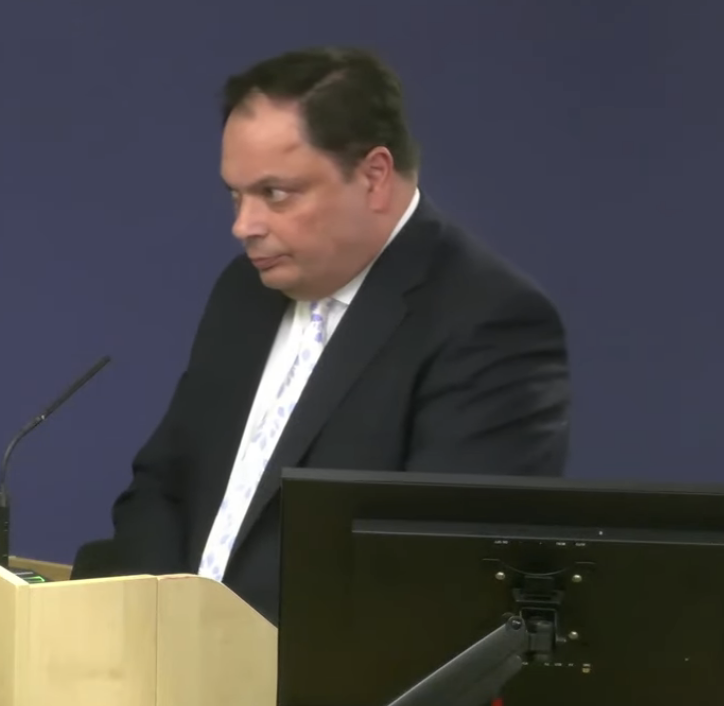
JB: So you’re saying by that that the word processor or other computer on which the statement was being typed or typed for you was working properly.
GJ: And whatever was being used for doing the analysis and so on, yes.
JB: So you’re saying that the first paragraph… relates to the computer on which the statement is being typed.
GJ: That is the only way I can understand that as making any sort of sense in terms of the people who are producing that sort of statement.
JB: You ask… that that paragraph is deleted.
GJ: Yes
JB: Did you think the computer on which the statement was being typed was not working properly?
GJ: No
JB: You were presumably satisfied that your draft witness statement was not inaccurate because of any improper use of the computer on which it was being drafted
GJ: Correct
JB: Put another way – to the best of your knowledge and belief, the computer on which you drafted the witness statement was operating properly at the time.
GJ: Yes
JB: If the computer on which you drafted the statement wasn’t operating properly presumably any such problems of the computer wouldn’t affect the accuracy of the content of the witness statement?
Jenkins agreed. Beer wanted to know how Jenkins could doubt the truthfulness of the paragraph based on whether the computer used to type it was working or not. Jenkins began to bluster:
“I was unclear about the whole lot… maybe… I must have had some sort of discussion to… er… and then when… said that needs to be in there then I realised what it must have meant because that was the only sensible explanation for what that paragraph could mean.”
Beer pulled him back: “No. You say looking back now your understanding is that the first of the two paragraphs, is, as I’ve summarised it, about the proper operation of the computers being involved to type up the witness statement.”
“Yup.” said Jenkins, with as much conviction as he could muster.
“You can’t honestly believe that.” Beer replied, calmly.
“Well I couldn’t see any other way that paragraph made any sense.”
Beer wondered, just wondered, mind, if Jenkins was trying to explain away the first paragraph “in a way which doesn’t hold substance?”
Jenkins insisted he could only (now) see one meaning to the paragraph, which was that it related to the computer producing the statement.
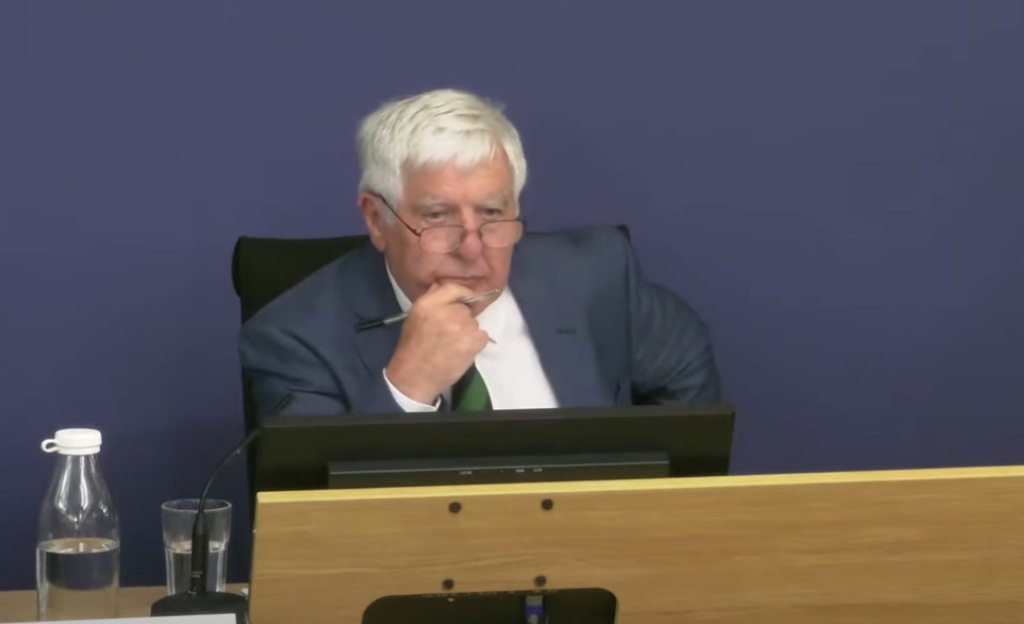
Beer suggested an alternative. “You know that the first paragraph… was intended to refer to Horizon and the truth of the matter is you didn’t think you could include that first paragraph because you knew there was no way that you could say that the Horizon system – ie the computer – was operating properly, or if not, any respect in which it was not operating properly wouldn’t affect the information held in it.”
“I wouldn’t have referred to the Horizon system as the computer,” replied Jenkins snootily. “I would have referred to it as the Horizon system.”
Sir Wyn Williams jumped in. “Well, you didn’t write it, though, did you?”
Jenkins was poleaxed. He stumbled. “Um… yes… but… I say… I couldn’t…”
“No no”, said Sir Wyn quietly. “You didn’t write it, did you?”
“No.” replied Jenkins.
“No.” concluded Sir Wyn.
Tomorrow brings the third day of Jenkins’ evidence.
To read a report of Day 1 of Jenkins’ evidence, please see “The misplaced confidence of an unreliable god“
The journalism on this blog is crowdfunded. If you would like to join the “secret email” newsletter, please consider making a one-off donation. The money is used to keep the contents of this website free. You will receive irregular, but informative email updates about the Post Office Horizon IT scandal.

Leave a Reply